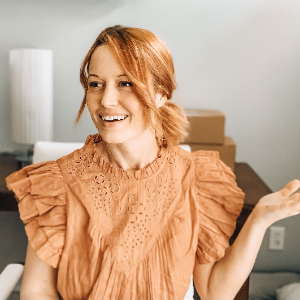9 Things to Declutter for Emotional Health and Happiness
Sep 05, 2025
Sometimes it’s not a big, dramatic event that’s draining your energy. It’s the daily friction of being surrounded by stuff that stirs up regret, stress, or low-key sadness.
Your home holds memory, identity, and emotion. And sometimes, it holds too much.
If you’re trying to feel lighter or find more peace in your day, here are 9 things worth decluttering—not because they’re “bad,” but because they might be emotionally heavy.
1. Reminders of an Old Identity
That blazer from your corporate days. The fitness gear from a version of you that trained for triathlons.
Keeping a few pieces is fine—but when it turns into a shrine for someone you're no longer trying to be, it can stall emotional growth. It might lead you grasping at old straws that you outgrew for a reason. Letting go doesn't mean forgetting—it means choosing who you're becoming.
2. “Someday” Projects That Guilt You
This could be an unopened language book, a half-finished quilt, or DIY supplies you bought during a short-lived wood-burning phase.
If it’s been years and you still feel a twinge of guilt every time you see it, that’s not inspiration—that’s pressure.
3. Sentimental Items That Hurt Instead of Heal
It’s okay to cry over an old letter or hold onto the baby shoes for a little longer. But be honest with yourself—are these things comforting… or cutting? Like, are you smiling at the memory of your daughter in the cute baby shoes, or are you doubled over in tears that she's not a baby anymore? Sometimes, we keep things because we think they represent love or meaning. But not everything meaningful needs to be saved forever. And not everything that stirs emotion is worth revisiting.
4. Emotionally Charged “Just in Case” Items
Sometimes our backup items are just fear in physical form. The fear of needing it. The fear of making the wrong choice.
If you’re holding on out of scarcity or self-doubt, check in with what emotion you're really storing. You can keep one safety net—but you probably don’t need five.
5. Clothes that don't fit
That item that makes you cringe every time you see it because of how much it cost… but you still don’t use it?
The money is already spent. The question now is whether you want to keep paying in mental energy and self-blame every time you see it.
6. Lifestyle crutches (Anti-growth clutter)
These are the things you keep around because they’re familiar—even if they’re holding you back.
Maybe it’s tools or setups that helped you cope through a tough season, but now just reinforce old habits you’re ready to move past, or old belief triggers.
Whatever the item is, if it’s tied to a story that no longer fits—“I’m not someone who finishes things,” “I just need everything within reach”—it might be time to release it.
Think of it like pruning a plant: you’re not being harsh, you’re making space for healthier growth.
7. Items Tied to Past Resolutions or Failed Routines
Unused yoga mats, dusty planners, unopened wellness books—they might be sending the wrong message. Let go of the tools that guilt-trip you and instead choose tools that match how you want to show up now. The unopened planner. The resistance bands you never used. The habit tracker you abandoned halfway through February.
These aren’t bad things. But when they sit there long enough, they stop feeling like potential and start feeling like judgment.
You don’t need your stuff to make you feel like you’ve failed. You need stuff that supports how you want to live now.
8. Items from Short-Term Life Stages
Pregnancy gear, medical supplies, baby gadgets, or intense hobby gear… all valid and useful—for a time.
If they no longer support your daily life, they may be quietly taking up emotional bandwidth.
9. Contact lists
Just because you once knew someone doesn't mean you're forever tied to them. There are a lot of people in the world, and you can't know them all, but you CAN be selective about who gets your energy and what kind of energy other people bring into your life. If you get bummed out every time you open social media, scroll through your contacts, or pull up your old address book, there's no harm in pruning.
Decluttering isn’t just about space—it’s about permission.
Permission to grow. Permission to evolve.
Permission to feel better in the life you’re building, not the one you’ve already lived.
And if you want support in that process, I’ve got a free workshop that walks you through the mindset and method for building a clutter-free home that actually supports your well-being.



